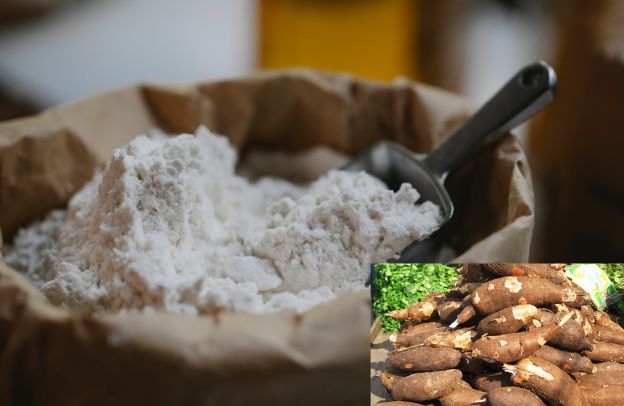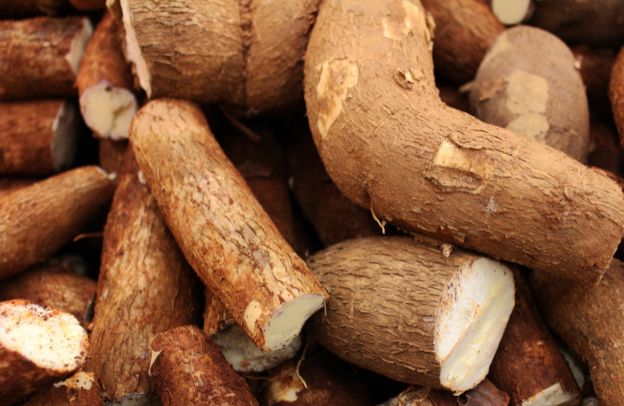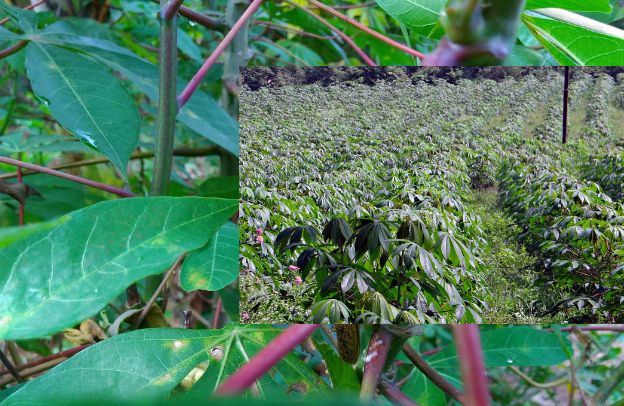Cassava In Traditional And Modern Cuisine A Culinary Journey

Have you ever thought that Africa’s economic growth could come not from skyscrapers or tech startups, but from Nigeria’s vast, untapped agricultural potential? With abundant farmland and crops like cassava offering huge opportunities, Nigeria’s agriculture sector is primed for growth. As a member of the African diaspora, you have the unique chance to invest in this sector—helping drive sustainable growth, create jobs, and address food security, all while unlocking the full potential of agriculture in Nigeria.
Learn How to Leverage Your Story through our Story To Asset Transformation (S.A.T) Framework.
In this article, we explore how Nigeria’s agricultural promise can be harnessed to create economic prosperity and improved food security, and how you can be at the forefront of this change.
Nigeria’s Agricultural Landscape: A Sleeping Giant Awakens
In 2023, BusinessDay reported that Kashim Shettima, the Vice President of Nigeria, is actively courting U.S. investors by highlighting the country’s vast 70 million hectares of arable land. Additionally, Shettima revealed the Nigerian government’s plan to establish mechanized farming centers across all 774 local government areas in the country.
Speaking in Iowa, U.S., during his investment mission, the Vice President emphasized that this initiative would play a pivotal role in ensuring food security. “We are assisting farmers in boosting production and providing crucial infrastructure for industries in peri-urban areas to expand their capacity,” Shettima stated.
Nigeria’s agricultural sector is often referred to as a “sleeping giant,” given the nation’s tremendous untapped potential. With a rapidly growing population exceeding 230 million, Nigeria has the resources to feed its people.
Nigerian Agriculture in 2023, according to the World Bank, contributes approximately 25% to Nigeria’s Gross Domestic Product (GDP) and employs more than 35% of the workforce. Despite these impressive figures, the country still imports billions of dollars’ worth of food annually—a glaring contrast to its agricultural potential.
This gap between Nigeria’s capacity and its current output offers a significant opportunity for forward-thinking investors.
The country’s diverse agro-ecological zones are ideal for cultivating a wide variety of crops, ranging from staples like cassava, yams, maize, and rice to high-value export commodities such as cocoa, palm oil, and rubber. Among these, cassava holds particular promise.
Nigeria is the world’s largest producer of cassava, generating over 59 million tonnes annually according to FAO, in 2022.
Despite this impressive yield, most cassava is used for subsistence farming, with only a small portion processed into higher-value products. This underutilization of cassava presents a unique opportunity for value addition, industrialization, and export—opening the door for strategic investment.
See also: Cassava in Africa: Its Role in Food Security and Economic Development
The Nutritional and Economic Power of Cassava
Cassava (Manihot esculenta) is much more than a starchy root; it is a nutritional and economic powerhouse. Traditionally prepared into dishes like garri, fufu, and tapioca, cassava forms the dietary backbone for millions in Nigeria and across Sub-Saharan Africa.
A 100-gram serving of fresh cassava provides about 130 calories and 75 to 80 grams of carbohydrates, making it an excellent source of energy.
Furthermore, cassava leaves are a rich source of vitamin A nutrient essential for vision, immunity, and overall health, addressing a critical public health issue in regions plagued by vitamin A deficiency.
Yet, the true potential of cassava lies not only in its traditional uses but also in its industrial applications. Cassava can be processed into high-value products such as:
- Cassava Flour: A gluten-free alternative that is increasingly popular in health-conscious markets.
- Starch: Utilized in food processing, textiles, paper, and even biodegradable plastics.
- Ethanol: A renewable biofuel that can help reduce reliance on fossil fuels.
- Animal Feed: A cost-effective substitute for imported grains in livestock production.
According to a report by Fortune Business Insider, the global cassava starch market was valued at USD 40.53 billion in 2018 and is projected to grow to USD 99.91 billion by 2032, reflecting a compound annual growth rate (CAGR) of 6.70% during the forecast period.
The report, which focuses on the cassava starch market’s size, share, and industry trends, breaks down the market by type (Native Starch, Modified Starch, and Sweeteners), end-use (Food & Beverages, Paper and Board, and Others), and regional forecasts from 2019 to 2032. It highlights that North America held the largest market share in 2018, accounting for 27.02% of global sales.
Additionally, the U.S. cassava starch market is expected to experience significant growth, reaching an estimated USD 14.6 million by 2032, driven by the increasing demand for gluten-free products.
This growth presents an opportunity for countries like Nigeria to invest in modern processing and value-added production, to potentially capture a larger share of the market. Such investments could help boost Nigeria’s non-oil economy and reduce its reliance on food imports.
Traditional Versus Modern Cassava Processing: A Culinary and Economic Journey
To fully realize cassava’s potential, it must be processed efficiently and safely. Let’s take a closer look at the traditional methods and modern innovations that define cassava processing.
Traditional Processing Techniques
In many rural communities, cassava processing has remained a labor-intensive, artisanal practice passed down through generations. This process includes:
- Peeling and Washing:
Traditionally, farmers peel cassava manually using a knife, then wash the roots in clean water to remove soil and contaminants. Although this method is slow and laborious, it is deeply embedded in local culture and remains the norm for many smallholder farmers. - Grating and Pressing:
After peeling, the cassava is grated—either manually or using simple mechanical devices—to separate the soft flesh from the fibrous core. The grated cassava is then pressed to remove excess moisture, a critical step to prevent spoilage. - Fermentation:
The grated cassava is left to ferment for 24 to 48 hours in traditional earthenware containers. Fermentation helps reduce cyanogenic glucosides (natural toxins) and improves the flavor, nutritional value, and shelf-life of cassava-based products. - Drying and Milling:
After fermentation, cassava is sun-dried on mats or trays. Once dry, it is milled into fine flour, which can be used to prepare traditional dishes like fufu and garri.
Modern Processing Innovations
Modern technology is revolutionizing cassava processing, offering significant improvements in efficiency, safety, and product quality:
- Mechanical Peelers and Graters:
Advanced machines with rotating blades can peel and grate cassava quickly and uniformly, reducing labor costs and minimizing waste. - Automated Fermentation and Drying Systems:
Controlled fermentation tanks and mechanical dryers ensure consistent processing conditions, leading to a higher quality final product. - State-of-the-Art Milling Equipment:
Modern mills produce fine, uniform cassava flour that meets both local and international standards, opening up export opportunities. - Quality Control and Safety:
Digital sensors and automated quality checks ensure that the processed cassava is free from contaminants and meets rigorous food safety standards.
By integrating these modern techniques with traditional practices, you can create a scalable and efficient processing operation that adds significant value to raw cassava.
Economic Impact: Catalyzing Growth and Job Creation
Nigeria’s heavy reliance on oil has long been a source of economic vulnerability. Diversifying the economy through agribusiness is not just an option—it is a necessity.
By modernizing cassava processing, Nigeria can tap into a high-value market that contributes significantly to its GDP. For example, if Nigeria were to process just 20% of its cassava production into high-value products, it could potentially generate an additional $5 billion annually.
Creating Sustainable Jobs
Agribusiness is a labor-intensive sector that can generate jobs at multiple stages of the value chain:
- On the Farm:
Smallholder farmers, who already form the backbone of Nigeria’s cassava production, will benefit from improved yields and access to new markets. - Processing and Manufacturing:
Modern processing plants require skilled labor, creating opportunities for both urban and rural workers. In regions like the southeast, women—who account for more than 60% of cassava processing activities (Nigerian Bureau of Statistics, 2023)—can particularly benefit from these investments. - Logistics and Export:
Enhanced transportation networks, cold storage facilities, and export hubs will not only create jobs but also reduce post-harvest losses, ensuring that more of Nigeria’s agricultural bounty reaches consumers both locally and internationally.
Enhancing Food Security and Nutrition
Investing in the cassava value chain also addresses critical issues of food security and malnutrition:
- Reliable Food Supply:
Cassava’s resilience to drought and poor soil conditions ensures a stable food supply, even in adverse climates. This stability is crucial for reducing Nigeria’s reliance on food imports. - Nutritional Benefits:
Cassava is a primary source of carbohydrates, and its leaves are rich in vitamin A. By promoting the consumption of cassava-based products, you can help reduce vitamin A deficiency—a leading cause of preventable blindness in children (UNICEF, 2023).
See also: The 5 Healthy Benefits Of Cassava Consumption
The Role of the African Diaspora: Driving Transformation
As a member of the African diaspora, you are uniquely positioned to drive change in Nigeria’s agribusiness sector. Your global exposure, financial resources, and access to advanced technologies can bridge the gap between local production and international markets.
1. Financing Agribusiness Growth
The latest Migration and Development Brief report reveals that remittance flows to Nigeria, Africa’s largest economy, grew by an estimated two percent in 2023, reaching over $20 billion, up from $20.1 billion the previous year.
“Nigeria, the top remittance recipient in Sub-Saharan Africa, is projected to receive more than $20 billion in official remittances by the end of 2023—a modest increase compared to the previous year,” the report stated.
Imagine if just 5% of this capital were directed into agribusiness ventures—this could catalyze the modernization of the cassava value chain.
You can establish diaspora-led investment funds, venture capital partnerships, or even participate in diaspora bonds that target agricultural development, reducing financial risk and ensuring sustainable returns.
Leveraging Technology and Innovation
Modern technology is revolutionizing agriculture worldwide, and Nigeria is no exception. With your exposure to cutting-edge agritech innovations, you can:
- Implement AI-driven precision agriculture to optimize cassava cultivation and predict weather patterns.
- Adopt blockchain solutions to enhance supply chain transparency, ensuring that cassava products meet international standards.
- Invest in mechanization for processing—automated peelers, graters, and dryers that reduce labor costs and improve product consistency.
By collaborating with local tech startups like ThriveAgric and Farmcrowdy, you can facilitate the transfer of innovative technologies, boosting efficiency and profitability throughout the cassava value chain.
3. Policy Advocacy and Strategic Partnerships
Your role goes beyond investment; you can be a catalyst for policy change. Engage with Nigerian policymakers to:
- Advocate for agriculture-friendly policies such as tax incentives, subsidized loans, and streamlined land leasing procedures.
- Support infrastructure projects that improve rural roads, cold storage, and processing facilities, reducing logistical challenges.
- Foster public-private partnerships (PPPs) that bring together government, private investors, and local communities to drive sustainable agribusiness growth.
Organizations like the Nigerian Investment Promotion Commission (NIPC) and the Nigeria Incentive-Based Risk Sharing System for Agricultural Lending (NIRSAL) provide frameworks that can help you navigate the regulatory landscape and mitigate investment risks.
Challenges and How to Overcome Them
While the prospects are enormous, investing in Nigeria’s agribusiness is not without its challenges. Overcoming these obstacles requires a proactive and strategic approach.
Infrastructure Deficits and Supply Chain Issues
Nigeria’s rural infrastructure often lags behind urban centers, leading to high post-harvest losses—sometimes as high as 40% (UNEP, 2023). To counter this:
- Invest in Cold Storage:
Establish modern cold storage facilities to preserve cassava and reduce spoilage. - Improve Transportation:
Develop efficient transport networks that connect rural farms to processing plants and export hubs. - Establish Local Processing Plants:
Building processing facilities near production zones minimizes waste and enhances value addition, ensuring that raw cassava is transformed into high-quality, marketable products.
Navigating Land Tenure and Regulatory Complexities
Land ownership in Nigeria can be intricate due to communal practices and bureaucratic red tape. As an investor:
- Explore Leasing Options:
Work with state governments that offer structured land lease programs. - Forge Public-Private Partnerships:
Collaborate with local authorities and agribusiness firms to secure large tracts of land for sustainable development. - Utilize Diaspora Incentives:
Leverage government incentives such as tax breaks, subsidies, and diaspora bonds designed to encourage foreign investment in agriculture.
3. Ensuring Quality Control and Food Safety
Cassava contains cyanogenic glucosides, which can release toxic hydrogen cyanide if not processed correctly. Maintaining stringent quality control is essential:
- Implement Rigorous Processing Protocols:
Ensure that each step—from peeling and washing to fermentation, drying, and milling—is conducted under strict hygiene standards. - Invest in Modern Equipment:
Mechanical processors and digital sensors can help standardize procedures and ensure that the final product meets international food safety standards. - Continuous Training and Education:
Support local training programs that educate farmers and processors on best practices in cassava processing and safety.
The Broader Impact: Why Your Investment Matters
Your strategic investment in Nigeria’s cassava sector can yield transformative benefits that extend far beyond financial returns:
Enhancing Food Security
Nigeria’s growing population is putting immense pressure on its food systems. By modernizing cassava production and processing:
- You help reduce the country’s reliance on food imports.
- You ensure a stable, nutritious food supply even during adverse climatic conditions.
- You directly contribute to lowering malnutrition rates and addressing vitamin A deficiency in vulnerable populations (UNICEF, 2023).
2. Driving Economic Growth and Industrial Diversification
Agribusiness is a critical pathway for diversifying Nigeria’s economy away from oil. Expanding the cassava value chain:
- Generates significant export revenue, with projections suggesting that processed cassava products could contribute billions to Nigeria’s non-oil GDP (PwC Nigeria, 2023).
- Stimulates rural development by creating jobs in farming, processing, logistics, and trade.
- Fosters an environment where local innovation and technology can thrive, driving broader industrial growth.
3. Empowering Rural Communities and Promoting Gender Equality
Cassava farming is deeply rooted in rural communities, where it is predominantly cultivated by smallholder farmers. In many regions, women play a vital role in both production and processing:
- By investing in modern processing facilities and training programs, you can empower women, who are often at the heart of cassava value chains.
- Economic empowerment through agribusiness helps reduce rural poverty, curtail urban migration, and enhance overall community well-being.
A Vision for the Future: Transforming Nigeria’s Agribusiness Landscape
Imagine a future where Nigeria’s cassava fields are not merely vast stretches of underutilized land, but vibrant hubs of modern agribusiness. In this vision:
- Cassava Processing Plants operate with cutting-edge technology, turning raw cassava into high-value products such as gluten-free flour, industrial starch, and bioethanol.
- Rural Communities Thrive as local farmers, empowered by improved infrastructure and fair market access, earn sustainable incomes that transform their livelihoods.
- Global Markets Recognize Nigerian Excellence in cassava-based products, positioning Nigeria as a leader in the global agribusiness arena.
- Food Security Is Reinforced as innovative processing and distribution ensure a stable supply of nutritious food for all Nigerians, even in the face of climate challenges.
This future is not a distant dream but a tangible opportunity waiting to be seized by visionary investors like you.
See also: The Nigerian Agricultural Landscape: A Wealth of Opportunities
Conclusion: Your Time to Act Is Now
Nigeria’s agricultural landscape is a sleeping giant, filled with untapped potential that can drive food security, create jobs, and transform the economy. Cassava, with its resilience and versatility, stands as a beacon of opportunity—a crop that not only sustains millions but can also be the cornerstone of a thriving industrial sector.
As a member of the African diaspora, you are uniquely equipped to unlock this potential. By investing in modern cassava processing, leveraging technology, and forging strong partnerships with local stakeholders, you can help shift Nigeria’s agribusiness paradigm from subsistence to global competitiveness. The numbers are compelling: with Nigeria producing over 59 million tonnes of cassava annually (FAO, 2022) and the global market for cassava products projected to soar, the economic case is clear.
See also Processing and Marketing of Selected Cassava Products in South-east Nigeria
Your investment can be the spark that ignites Nigeria’s agricultural renaissance, generating substantial returns while addressing critical challenges such as food insecurity and malnutrition. Imagine creating a legacy where your efforts lead to sustainable development, rural empowerment, and a brighter future for millions across Africa.
The opportunity is immense, the potential is vast, and the time to act is now. Will you seize the chance to transform Nigeria’s agribusiness landscape and be a driving force in Africa’s future? The power to make a difference is in your hands.
Learn How to Leverage Your Story through our Story to Asset Framework.





